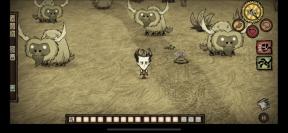“Regulation of the impact of an organization’s production activities on the environment: quality standards and permissible impact standards” - course 23,000 rubles. from MSU, training 4 weeks. (1 month), Date: November 29, 2023.
Miscellaneous / / December 01, 2023
Graduated from the Faculty of Soil Science of Moscow State University. M.V. Lomonosov, specialty: soil scientist-agrochemist, Department of Soil Chemistry.
Candidate of Biological Sciences (1997) in the specialty “Soil Science”, thesis topic: “Change in humus of dry steppe soils over time during irrigation (using the example of the Kulunda steppe.”
Area of scientific interests: environmental assessment and regulation of the ecological state of oil-contaminated soils, waste management production and consumption, reclamation of disturbed lands, biological control, environmental regulation of amphibians landscapes
Author of more than 100 scientific publications, including co-author of the monographs: “Protection of Soils and Lands” (2015 et al.); “Ecological soil science: stages of development, challenges of our time” (2015 et al.); Environmental regulation and management of soil and land quality (2013 et al.).
Co-author of “Methods for measuring mass fractions of petroleum product fractions in samples of soils, soils, bottom sediments, production waste using gas chromatography methods in combination with automatic accelerated extraction", 2018.
Participant of international conferences, in particular the congresses Soils of Urban, Industrial, Roadside, Mining, and Militarized Landscapes (SUITMA), EUROSOIL, SETAC.
Member of the program committees of the SETAC Europe 30th annual meeting (SETAC SciCon), the All-Russian conference “Soil Resources of Siberia: Challenges of the 20th Century”.
Member of the Society of Soil Scientists named after. IN. IN. Dokuchaeva; Society of Environmental Toxicology and Chemistry (SETAC).
She has developed and teaches training courses to students:
“Fundamentals of reclamation of disturbed and contaminated lands”, “Environmental safety in the oil and gas industry”, “Ecological regulation of amphibious landscapes”,
She has developed and teaches training courses as part of additional education at the faculty:
“Ensuring environmental safety by managers and specialists of environmental services and environmental control systems”; “Fundamentals of reclamation of disturbed and contaminated lands.”
Supervises the research of students both in the specialty of soil science and in the specialty of ecology.
1. Fundamentals of the legislation of the Russian Federation for environmental regulation in the field of environmental protection. Responsibility for violation of legislation in the field of environmental protection and resolution of disputes in the field of environmental protection
1.1 Fundamentals of the legislation of the Russian Federation for environmental regulation in the field of environmental protection.
1.2 Responsibility for violation of legislation in the field of environmental protection and resolution of disputes in the field of environmental protection
2. Sources of negative impact on components of the natural environment
2.1 Point sources of negative impacts
2.2 Area sources of negative impact
2.3 Linear sources of negative impact
4. Environmental quality standards and exposure standards. Sanitary and hygienic standards
4.1 Environmental quality standards and regulatory principles
4.2 Sanitary and hygienic standards
5. Permissible environmental impact standards
6. Standards for permissible residual content of pollutants, including oil and petroleum products in soils (DOSNP)
6.1. Principles for establishing DOSNP standards in soils
6.2. Assessment criteria for justifying DOSNP standards in soils
6.3. Established standards for permissible residual content of oil and petroleum products in soils in the Russian Federation
7. Rationing system abroad
8. Practical experience of environmental regulation
9. Law enforcement and judicial practice
The online course “Radioactive Waste Management” is focused on discussing the current state of science, technology and practices in the field management of radioactive waste of various levels of activity and isotopic composition for students in technical universities, primarily NRNU MEPhI.
4,2



